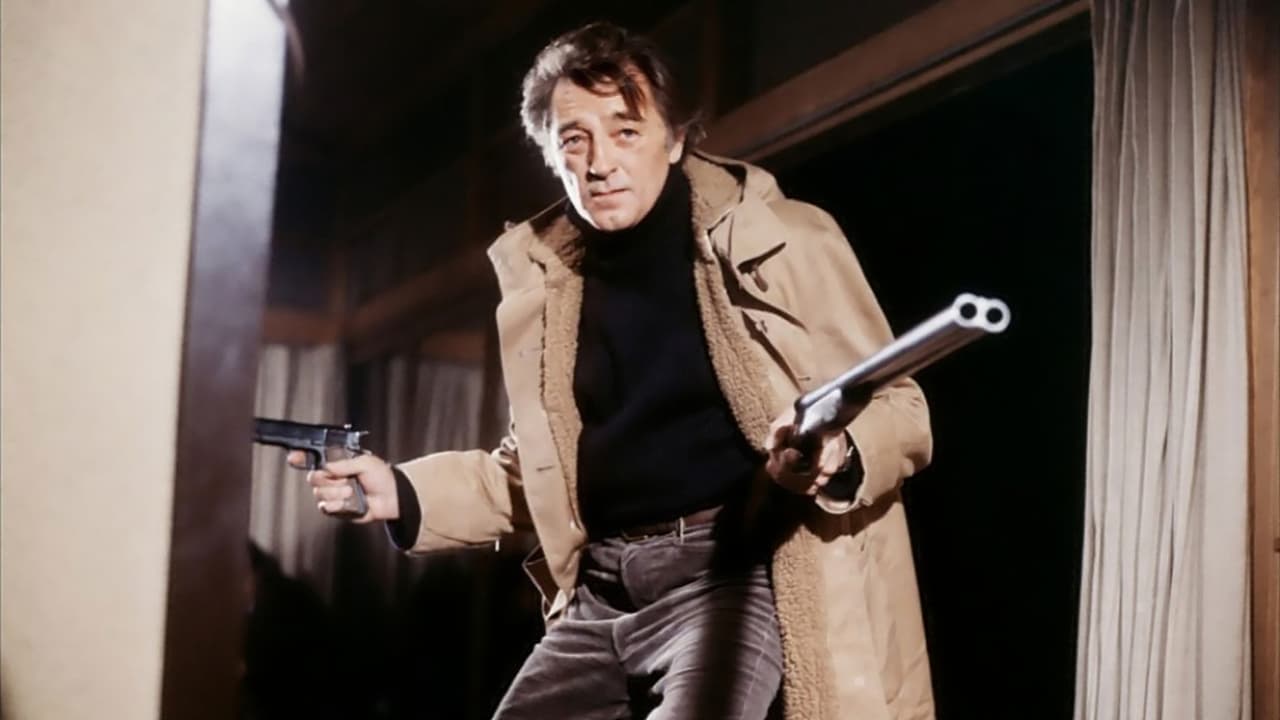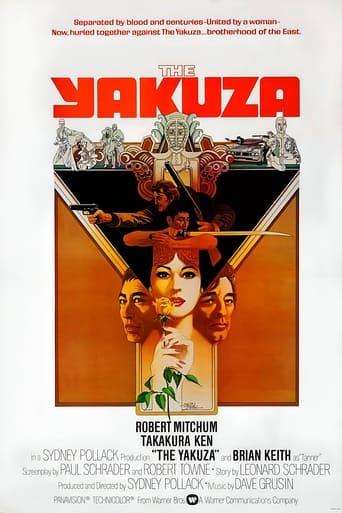Softwing
Most undeservingly overhyped movie of all time??
Sameer Callahan
It really made me laugh, but for some moments I was tearing up because I could relate so much.
Philippa
All of these films share one commonality, that being a kind of emotional center that humanizes a cast of monsters.
Janis
One of the most extraordinary films you will see this year. Take that as you want.
steven-j-ellis
I saw this movie several times when I was twenty something then several times when thirty something and just watched again as fifty something.. boy oh boy, it is still a friggin awesome movie. It just doesn't date. The script is thoughtful, respectful to culture and very mature.If you are looking for a ton of useless violence then move along, it is not about that. In fact, some of the fight scenes are pretty realistic from the point of view that the antagonists appear to be well aware of their mortality and show their hesitation in putting their lives on the line. There is no riddling nor intricate plot - it is straightforward and easy to follow yet portrays a brilliant story of respect, honour and tradition. Robert Mitchum and Ken Takakura are simply brilliant. Sydney Pollack directs yet another masterpiece. If you have never seen this movie, it just has to be on the bucket list.
Robert J. Maxwell
Like the highly acclaimed "The Godfather," released two years earlier, "The Yakuza" takes us into an exotic milieu dominated by honor, ritual, and violence.Mitchum is Harry Kilmer, once part of the occupation army in Japan, who had a girl friend, Eiko. Mitchum's friend, Brian Keith, owes the Mafia -- I mean the Yakuza -- a lot of money that he doesn't have, and the Yakuza have kidnapped his daughter and are holding her until payment is made. He begs Mitchum to return to Japan with a young companion, Richard Jordan, and see if he can straighten things out.In Japan, they seek out an ex Yakuza member, Ken Takakura, known as "the man who never smiles." At the moment he's teaching kendo -- that where masked opponents bat each other over the head with sticks -- and making zen-like statement. "Do not expect to win. Do not expect to lose." Takakura is honor-bound to never take up arms of any sort against the Yakuza but things get complicated, too complicated to explain in detail. If you liked "The Godfather," you may like this, although the plot is more sketchy and the characters less human. There are family intrigues, yes, but we don't get to see them at familiar tasks like gobbling down spaghetti. Sidney Pollack is not Francis Ford Coppola.The film is rather slow and detailed, interrupted by bursts of outrageous brutality. The final shoot out, or slice out, has everyone splattered with blood but it's not as shocking as the shootings in "The Godfather" movies.I rather enjoyed it, despite its overall depressing quality. It's winter in Japan, cloudy and dark, and so is the imagery. And self-amputation adds little verve to the goings on. It's worth seeing, though, because the social setting really IS alien to Americans. When the Japanese cut something with a knife, they draw it towards them. They drive on the wrong side of the road. Their screws tighten in the wrong direction.They're shamefully honest. An acquaintance of mine, while in the Navy, visited a Japanese bawdy house. When he left, he was halfway down the street when one of the girls came running after him, shouting, and waving the wallet he'd forgotten.Put THAT in your pipe and smoke it, Yank!
jeffclinthill
I am writing this as a lifelong movie fan, a great admirer of Sydney Pollack's skill at directing everything from the genres of "Jeremiah Johnson" to "Tootsie" to "Out of Africa," someone with a graduate degree in Japanese psychological anthropology from Sophia University, Tokyo, and someone who lived in Japan for 30 years. A cheesy gaijin's (外人の)impression of Japan, "The Yakuza" is chock full of stereotypical things and scenes one will never see in Japan due to strict laws, heavy law enforcement, and the astronomical price of real estate in urban Japan. Immediately after World War II, the Japanese firearm and sword law effectively prohibited the private ownership of both guns and swords. Yet, in "The Yakuza," Herb Edelman's house in Kyoto is an arsenal of swords and firearms openly displayed on the walls. He owns even more guns hidden in drawers. Without any visible means of support, Herb Edelman owns a house in the Kyoto area that is financially impossibly spacious and full of items, such as a huge "Japanese lantern" that looks like he stole it from a shinto shrine. "Gaijin," written 外人 in kanji, is the term that Japanese people colloquially (and rather insultingly) use for "foreigner." It is composed of two characters that literally mean "outside person."
RainDogJr
The Yakuza is one of those titles I first knew about not when I read a review or heard something about it from a friend or ended for this and that in its IMDb page but when I saw its R1 DVD at my local store. I recall being interested just because of the title and not really because of its director (Sidney Pollack) or because of its cast (, all completely unknown for me before seeing this film). After a few times of only seeing the cover again (of course I came to IMDb to know more about it only to find that it is pretty much an overlooked film) I finally decided to pay good money for the DVD, I recall that I bought it a little time before Sidney Polack passed away. But I just saw it last night (yes, is very common that I get DVDs and pop them into my DVD player after many time) and I must say I'm so glad that almost a year ago I added it to my collection.

